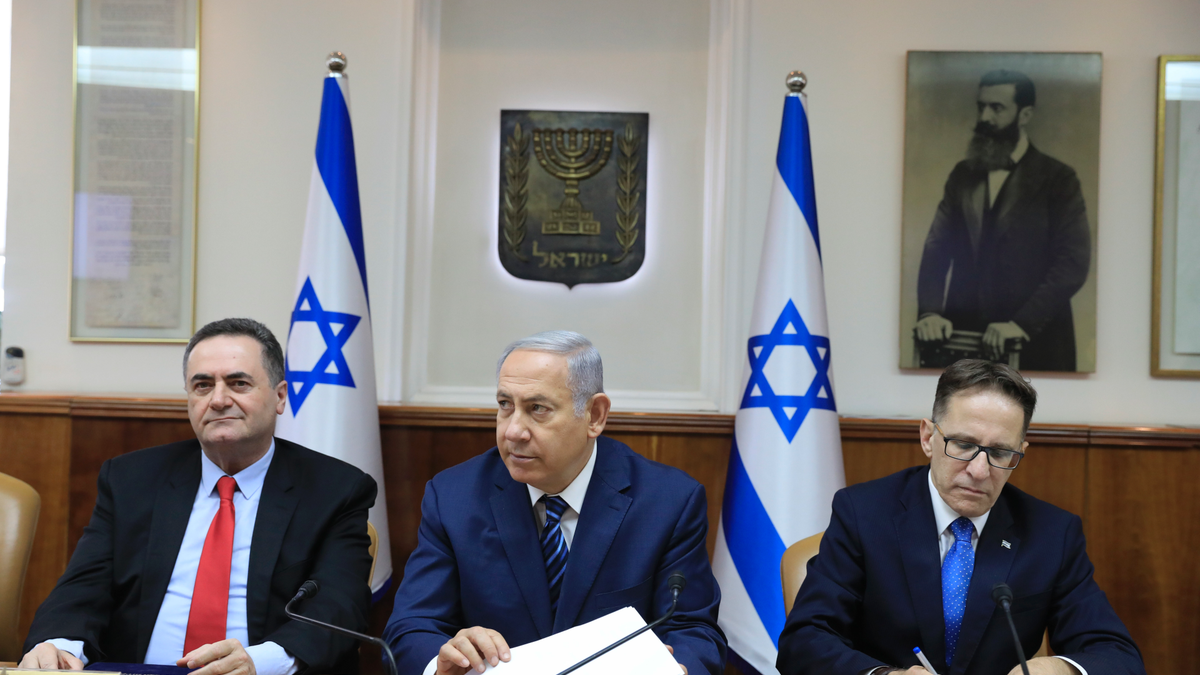
JERUSALEM – Israel's parliament passed a law on Monday that withholds hundreds of millions of dollars in funds for the Palestinians over welfare payments given to attackers and their families.
The new legislation will deduct the money that the Palestinians allocate to their so-called "martyrs' fund" from taxes collected by Israel on behalf of the Palestinian Authority.
The development, condemned by the Palestinians, deepened a budget crunch for the Palestinian government already hit hard by U.S. cuts in aid.
Israel has long pushed for the Palestinians to halt the stipends — which benefit roughly 35,000 families of Palestinians killed and wounded in the conflict with Israel — and has said the practice encourages violence. Among the beneficiaries are families of suicide bombers and other militants involved in deadly attacks.
The stipends total approximately $330 million, or roughly 7 percent of the Palestinian Authority's $5 billion budget in 2018.
Lawmaker Avi Dichter, a co-sponsor of the law, said the families of Palestinian attackers had easy access to these funds.
"The only thing you have to do is to kill Israelis, to get arrested or killed," he said.
But the Palestinians say the number of people involved in deadly attacks is a small percentage of those aided by the fund. They say the tax revenues, collected by Israel for them under past peace agreements, are their money, and that the Palestinian Authority has a responsibility to all of its citizens like any other government.
For the Palestinians, the families of attackers — like all Palestinians in the territories — are widely seen as victims of a half century of Israeli occupation.
Saeb Erekat, the chief Palestinian negotiator, accused Israel of "theft and piracy."
"The Palestinian Authority is responsible for all Palestinians, and is responsible for the families of prisoners and martyrs within the program of social assistance," he said.
The Knesset, Israel's parliament, approved the law with 87 of the house's 120 lawmakers voting in favor of the bill while 15 opposed it. The remaining lawmakers were absent.
Elazar Stern, the Yesh Atid party lawmaker who co-sponsored the bill, said the withheld money would be put aside, giving the Israeli government discretion on whether to return it to the Palestinians at some point.
A previous draft version of the bill stipulated the money would go to Israeli victims of Palestinian attacks, but it was scrapped due to potential legal complications. Stern claimed that the martyrs' fund pays higher benefits to those involved in more serious attacks.
"It's not only that they encourage their people to take terror actions. They even encourage them to cause more casualties of innocent people," Stern said.
Arab lawmakers railed against the bill ahead of the vote. Jamal Zahalka, of the Joint List of Arab parties, said the bill was "despicable" and called Dichter, a former head of the Shin Bet security agency, "a terrorist."
"You are stealing from the Palestinian people," Zahalka shouted.
The Israeli law passed the same day that Australia said it ended direct aid to the Palestinian Authority, claiming Australian donations could increase its capacity to pay Palestinians convicted of politically motivated violence.
A few months earlier, the U.S. Congress approved the Taylor Force Act, a bill to halt U.S. funding to the Palestinian Authority until it stops paying stipends to Palestinian attackers and their families.
The United States is now reviewing some $200 million in assistance for the Palestinians. It has also cut some $300 million to the U.N. agency for Palestinian refugees and their descendants, known as UNRWA, further straining the Palestinian budget.
Stuart Force, the father of Taylor Force, an American student who was killed in a 2016 attack in Israel, attended Monday's Knesset vote. He said he was "really heartened" by Israeli lawmakers' support for the Taylor Force Act as it passed through Congress.
"When there was a possibility to come out and show my support, I jumped at it," Force said. He said the vote "will bring awareness" to the issue and hoped other countries would follow suit.
The cash-strapped Palestinian Authority, which relies heavily on the Israeli tax funds and international aid, has suffered from chronic budget problems.
Issa Qarakeh, the PA's minister of prisoner affairs, said that even if Israel halts the transfer of funds, the Palestinian government will still pay the stipends.
"When we signed Oslo Agreement, it was clear to Israel that the Palestinian Authority pays these families, and they never objected. Now they are creating a problem just to avoid addressing the real problems, which stems from the Israeli military occupation and building the settlements on our land, not the social welfare money that goes to the families who lost their source of living," he said.
Israel's step to cut the funds further underscored the dim prospects of peace in the decades-long conflict.
A survey published Monday found that Israelis have little hope in the Trump administration's upcoming peace proposal.
The poll, by the Israel Democracy Institute and Tel Aviv University, indicates that nearly three-quarters of respondents think the plan has a very low or moderately low chance of success. The survey did not ask respondents why they think so.
The poll, which had a margin of error of 4.1 percentage points, included 600 Jewish and Arab respondents.
